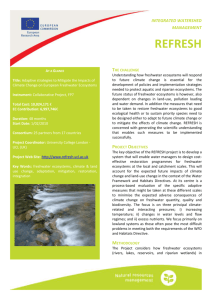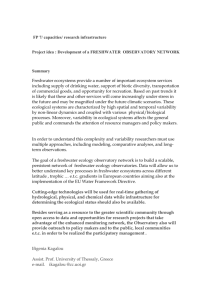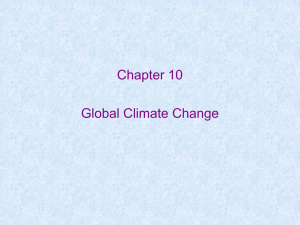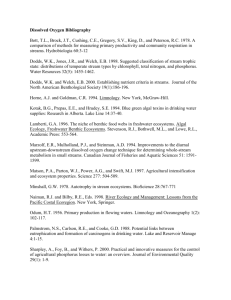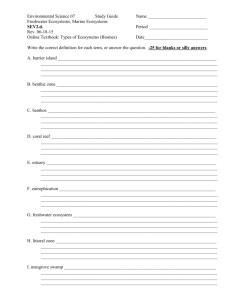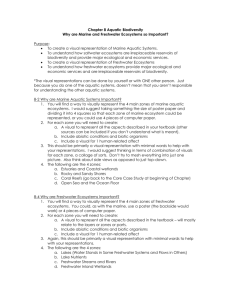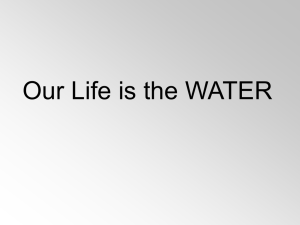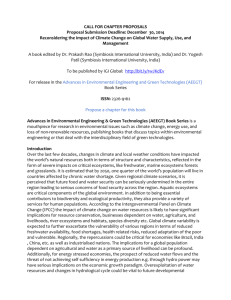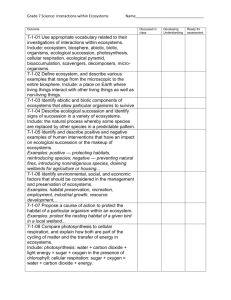REFRESH_Factsheet_v3 - wise
advertisement
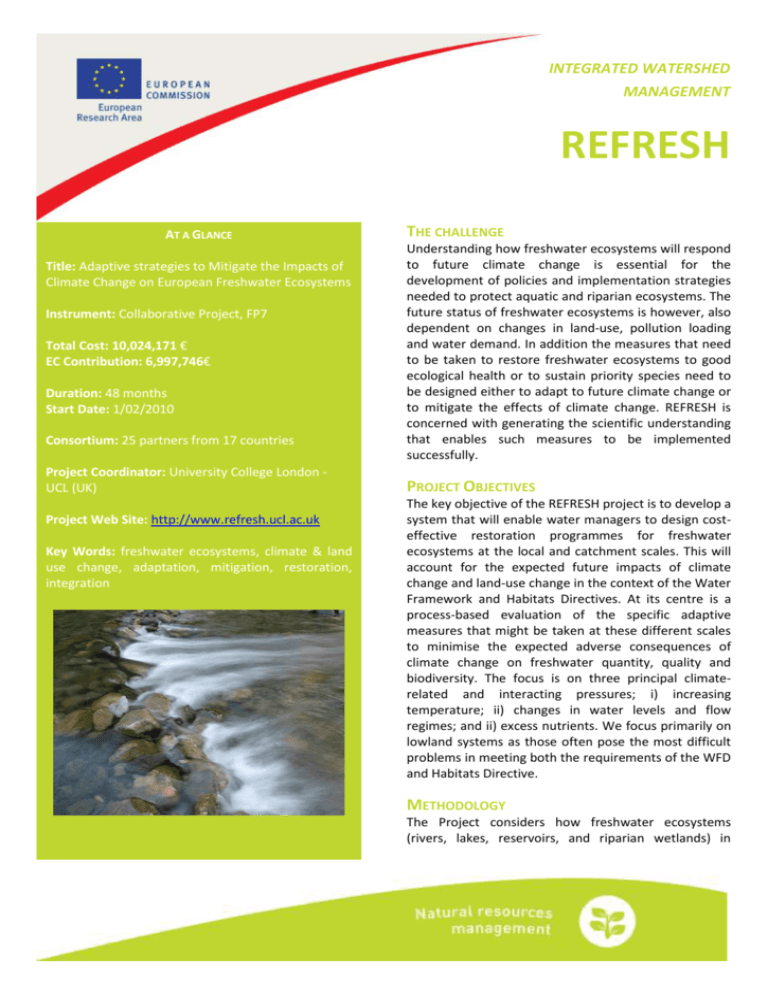
INTEGRATED WATERSHED MANAGEMENT REFRESH AT A GLANCE Title: Adaptive strategies to Mitigate the Impacts of Climate Change on European Freshwater Ecosystems Instrument: Collaborative Project, FP7 Total Cost: 10,024,171 € EC Contribution: 6,997,746€ Duration: 48 months Start Date: 1/02/2010 Consortium: 25 partners from 17 countries Project Coordinator: University College London UCL (UK) Project Web Site: http://www.refresh.ucl.ac.uk Key Words: freshwater ecosystems, climate & land use change, adaptation, mitigation, restoration, integration THE CHALLENGE Understanding how freshwater ecosystems will respond to future climate change is essential for the development of policies and implementation strategies needed to protect aquatic and riparian ecosystems. The future status of freshwater ecosystems is however, also dependent on changes in land-use, pollution loading and water demand. In addition the measures that need to be taken to restore freshwater ecosystems to good ecological health or to sustain priority species need to be designed either to adapt to future climate change or to mitigate the effects of climate change. REFRESH is concerned with generating the scientific understanding that enables such measures to be implemented successfully. PROJECT OBJECTIVES The key objective of the REFRESH project is to develop a system that will enable water managers to design costeffective restoration programmes for freshwater ecosystems at the local and catchment scales. This will account for the expected future impacts of climate change and land-use change in the context of the Water Framework and Habitats Directives. At its centre is a process-based evaluation of the specific adaptive measures that might be taken at these different scales to minimise the expected adverse consequences of climate change on freshwater quantity, quality and biodiversity. The focus is on three principal climaterelated and interacting pressures; i) increasing temperature; ii) changes in water levels and flow regimes; and ii) excess nutrients. We focus primarily on lowland systems as those often pose the most difficult problems in meeting both the requirements of the WFD and Habitats Directive. METHODOLOGY The Project considers how freshwater ecosystems (rivers, lakes, reservoirs, and riparian wetlands) in Europe will change over the next fifty years and it uses a combination of novel experiments and modelling to generate the understanding and tools needed to implement an adaptive management strategy. A series of carefully designed, co-ordinated field are supported by laboratory and mesocosm experiments, analysis of major databases that enable time-space modelling, further analysis of long-term time-series assembled during the Euro-limpacs project and by evidence from palaeoecological studies where extreme events and abrupt transitions in the past have been recorded. All these approaches will be combined to help develop the process-based models needed to run scenarios for adaptive strategies and which are required for upscaling from local to river basin. inputs to the integrated catchment models which will simulate physical, chemical and ecological response to changes in climate and land use. Early results from OBTAINED AND EXPECTED RESULTS Results from these and other reviews are being synthesised on the web site http://www.climateand-freshwater.info/. The river, lake and wetland experiments are have been completed. Preliminary REFRESH will provide an improved prediction capacity of the hydrological and hydrochemical response of surface waters to land-use/management and climate change and the subsequent changes in aquatic ecological interaction. It will show how an integrated approach to water-body assessment and management can be developed for any European catchment using a series of catchments representative of the main climate regions in Europe. Climate and land use change scenarios have been generated for the case study catchments which provide predictions as to future conditions at these sites. These will form the primary modelling at a number of sites indicate that current management practices will not be sufficient to achieve WFD compliance in future and greater efforts will be required to achieve good ecological status. Threats to WFD compliance will stem from changes in both land cover and climate. Further progress has been made with strengthening the links between the physical / chemical and the ecological models, one of the key innovative aspects of the Project. In tandem with this, a series of wide ranging reviews has been completed focusing on adaptation, mitigation and restoration strategies at different scales. results indicate the potential of riparian shading as a management tool for lowland streams both in terms of reducing temperature and increasing habitats. Results of lake mesocosm experiments indicate further reductions in nutrient loading will be necessary to offset temperature driven increases in eutrophication. Further stakeholder workshops have taken place to discuss cost effective measures to meet the WFD and PROJECT PARTNERS University College London, UK Institut National de la Recherche Scientifique, (Canada) CA Aarhus Universitet- National Environmental Research Institute, DK Commission of the European Communities - Directorate General Joint Research Centre, EU The University of Reading, UK Stichting Deltares, NL Finnish Environment Institute, FI Universitaet fuer Bodenkultur Wien, AT Universitaet Duisburg-Essen, DE Biology Centre AS CR, v.v.i., Institute of Hydrobiology, CZ Alterra B.V.. NL Eesti Maaülikool (Estonian University of Life Sciences), EE Natural Environment Research Council, UK Universitat de Barcelona, ES Swedish University of Agricultural Sciences, SE University of Patras, GR Macaulay Land Use Research Institute, UK Centre National de la Recherche Scientifique - UNIVERSITE PAUL SABATIER, FR Utrecht University, NL Norwegian Institute for Agricultural and Environmental Research, NO Consejo Superior de Investigaciones Científicas, ES Norwegian Institute for Water Research, NO Middle East Technical University, TR Trent University, CA Forschungsverbund Berlin e. V, DE Australian Rivers Institute (ARI), Griffith University, AU HD. This has informed the modelling work at the demonstration case studies.
